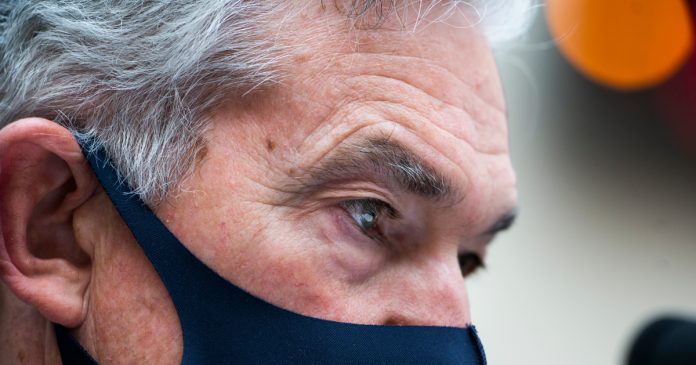[ad_1]
At the conclusion of its two-day policy meeting, Federal Reserve policymakers said the path of the economic recovery will depend on the course of the virus and ‘progress on vaccinations’.
Federal Reserve policymakers said on Wednesday that the United State’s economic recovery hinges on vaccination drives.
“The path of the economy will depend significantly on the course of the virus, including progress on vaccinations,” the Fed said in a statement issued at the close of its two-day policy meeting. “The ongoing public health crisis continues to weigh on economic activity, employment, and inflation, and poses considerable risks to the economic outlook.”
As expected, Fed officials voted unanimously to keep the central bank’s benchmark interest rate unchanged at near zero.
The Fed said that the pace of the rebound in US economic activity since the depths of the COVID-19 crisis has “moderated in recent months with weakness concentrated in the sectors most adversely affected by the pandemic.”
The US central bank also reiterated its previous commitment to not raise borrowing costs until the nation’s labour market heals – even if it means allowing inflation to run above its 2 percent target rate for a while – and said it would continue buying at least $120bn worth of US treasuries and mortgage backed securities to help nurse the economy back to health.
Myriad economic indicators have been signaling that the US economic recovery is faltering and in need of a shot of adrenaline.
Weekly jobless claims, a proxy for layoffs, are still stubbornly high, with the latest reading from the US Labor Department showing 900,000 people applied for state unemployment benefits in the week ending January 16 – significantly higher than the 200,000 weekly average right before the pandemic struck.
The economy lost 140,000 jobs in December and the unemployment rate was 6.7 percent – nearly twice the level just prior to the pandemic.
President Joe Biden has prosed a new, massive $1.9 trillion stimulus package to accelerate the nationwide vaccination drive, and give more financial help to struggling households, small businesses and communities that have borne the brunt of the pandemic’s economic fallout.
The measures include giving an additional $1,400 direct cash transfer to qualifying Americans – in addition to $600 stimulus cheques included in December’s $900bn round of virus relief aid – and boosting the federal weekly top-up to state unemployment benefits from $300 to $400.
Democrats now control both houses of Congress – which ultimately controls the nation’s tax and spending policies – but many Wall Street analysts expect horse-trading with Republicans to chip away at the size and scope of Biden’s proposed stimulus.
[ad_2]
Source link











